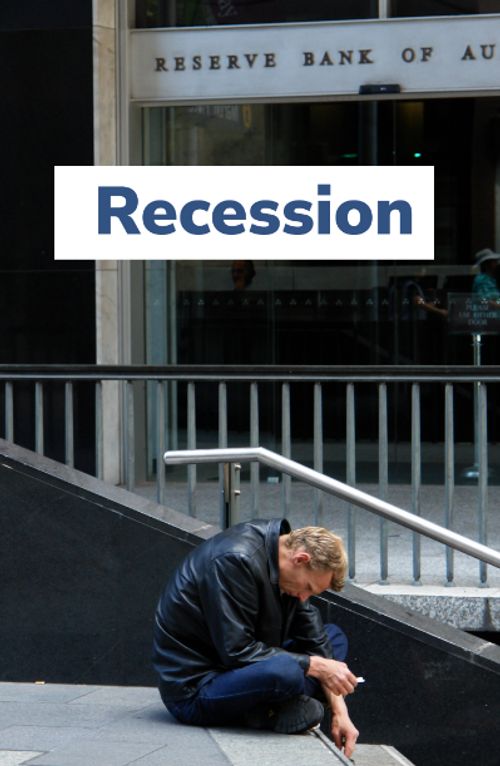What is a recession and what are its causes?
Aug 01, 2022 · 2 mins read
0
Share

Economists argue over the definition of a recession. Is it simply two quarters of consecutive negative growth, or a sustained downturn? Economics educator and investor Richard Coffin says a recession is a significant decline in economic activity lasting for months or even years.
Save
Share
Recessions are a normal part of an economy’s business cycle, where expansion & contraction occur. In a recession, a country’s economy experiences negative gross domestic product (GDP), rising unemployment, falling retail sales, & reduced income and manufacturing for a long time.
Save
Share
A recession occurs when there is an imbalance between supply and demand. There’s a mismatch between the demand for products, the services and products offered by businesses, and the price at which the goods and services are sold.
Save
Share
Interest rates and inflation rates fluctuate and are good predictors of the health of an economy. Shocks like wars (Ukraine-Russia), natural disasters, or geo-political factors cause these fluctuations.
Save
Share
What causes a recession?
Inflation: Inflation is the increase in price of products or decrease in the value of money. A little inflation is necessary to help businesses grow. But increasing inflation without an increase in the demand can eventually lead to recession.
Save
Share
Too much debt: Expanding businesses produce more with the assumption of growing demand. But if the economy slows, companies end up with higher debt. Borrowing to pay off debt impacts their business activity.
Save
Share
Psychology: Fear of a recession can become a self-fulfilling prophecy if people cut down or stop investing and spending. Producers reduce their operating costs, leading to job cuts or lower wages. That leads to less demand and possible recession.
Save
Share
Government-Induced: To increase the supply of money in the economy, governments either increase their own spending or print more money. Central banks decrease their interest rates.
Save
Share
But the excessive supply of money in the economy can lead to high inflation, with too much money chasing a fixed supply of goods and services. As inflation can spark a recession, governments and central banks are arguably to blame for many mild and severe downturns.
Save
Share
Final Note: A final cause of recession is an asset bubble burst. An asset bubble occurs when the price of an asset: stock, bond, real estate or commodity rises fast & trades for higher than underlined fundamentals. The bigger the bubble, there are more chances of a recession.
Save
Share
0